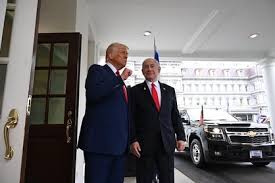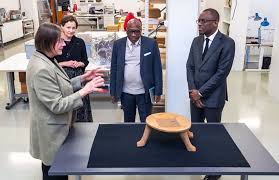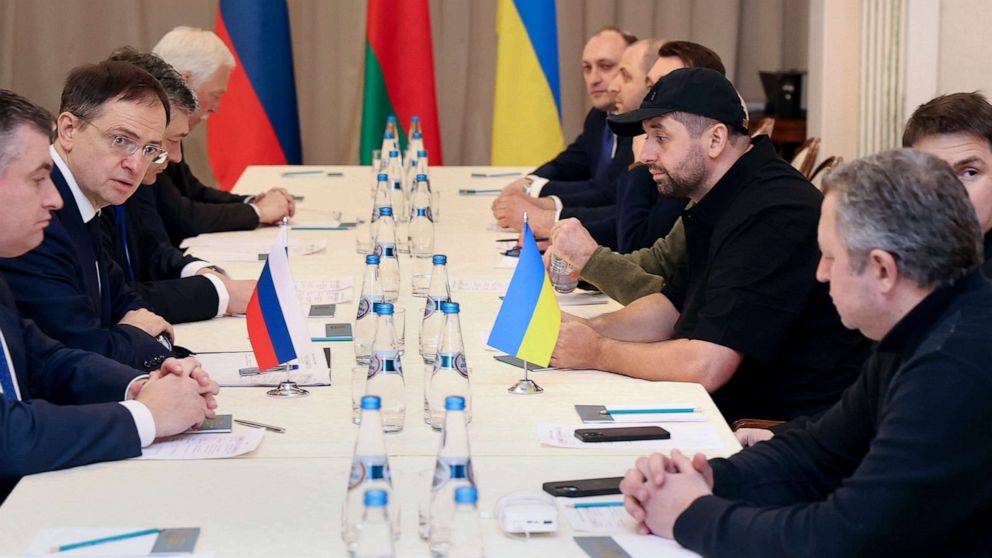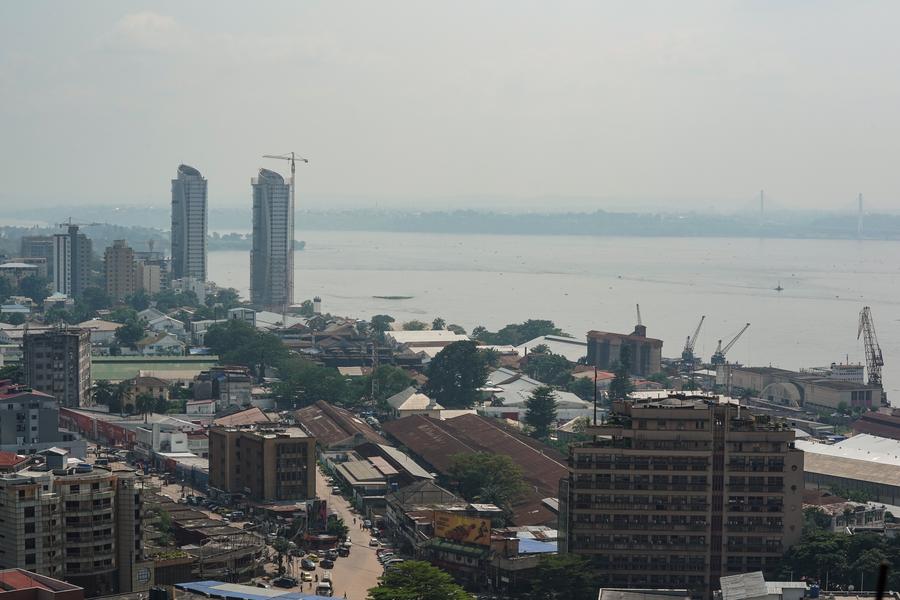by Xinhua writer Shi Yu
In the lead-up to a high-level peace conference on Africa’s Great Lakes region, scheduled for Thursday in Paris, firearms are still roaring in eastern Democratic Republic of the Congo (DRC), as diplomacy struggles to keep pace with a war it seeks to end.
Despite the recent conclusion of a ceasefire verification mechanism, clashes between the DRC military (FARDC) and March 23 Movement (M23) rebels rage on. The resulting stalemate has also worsened amid a deepening humanitarian crisis.
AMBITIOUS GATHERING
According to an Oct. 16 announcement by the French Foreign Ministry, the conference for peace and prosperity in Africa’s Great Lakes Region aims to mobilize the international community around three priorities: addressing the humanitarian emergency in the eastern DRC, supporting ongoing mediation efforts, and advancing regional economic integration, “a crucial vehicle for lasting peace.”
Co-organized by Togo, the African Union’s mediator for the Great Lakes, the gathering is expected to draw representatives from about 60 countries and international organizations, France said.
Both DRC President Felix Tshisekedi and Rwandan President Paul Kagame are on the invitation list, but their participation has yet to be confirmed, according to local media.
For decades, the eastern DRC has been the epicenter of recurring violence, fueled by a myriad of local and cross-border conflicts.
Kinshasa accuses Rwanda of backing the M23, a charge that Kigali denies, while Randa blamed the FARDC for collaborating with the Democratic Forces for the Liberation of Rwanda (FDLR), a group implicated in the 1994 genocide.
Since January this year, the M23, now part of a broader politico-military coalition known as the Congo River Alliance (AFC), has seized several strategic towns, including Goma and Bukavu. In these areas, parallel administrations have been installed, weakening state authority and worsening an already dire humanitarian situation.
The Paris conference, announced months ago but repeatedly postponed amid escalating insecurity in the eastern DRC, represents a continuation of France’s diplomatic push for peace in the Great Lakes region.
In September 2022, French President Emmanuel Macron brought Tshisekedi and Kagame together in New York, on the sidelines of the United Nations General Assembly, in an early attempt to defuse tensions.
GUNFIRE PERSISTS, DIPLOMACY FALTERS
In the eastern DRC, some 6,000 km away from Paris, the sound of gunfire seems bent on drowning out diplomatic rhetoric.
In the early hours of Tuesday, fighting flared again on multiple fronts in North Kivu’s Masisi and Walikale territories, pitting M23 forces against the FARDC and its allies.
Barely two weeks after signing a ceasefire monitoring mechanism in Qatar’s Doha, both sides began trading barbs over renewed hostilities.
On social media platform X, Benjamin Mbonimpa, one of the M23’s chief negotiators with the DRC government in Doha, accused Kinshasa of “sabotaging” the Doha peace talks, which were initially expected to yield a comprehensive peace accord in August. Repeated postponements have since pushed the process to the brink.
FARDC spokesman Sylvain Ekenge said the military will no longer “stand idle” in the face of provocations. “They claim we bombed them (M23), but it’s they (M23) who attack us first, and we respond,” he said in a recent interview. “We cannot keep turning the other cheek. Either we want peace, or we don’t.”
He rejected allegations of attacks on civilians, insisting that “it is always the M23 that violates the ceasefire.”
On the diplomatic front, the situation remains precarious. Two complementary but faltering frameworks — the Washington Process backed by the United States, and the Qatar-led Doha Process — currently form the twin tracks of mediation between Kinshasa, Kigali, and the M23.
After the DRC and Rwanda inked a peace accord in June in Washington, implementation remains partial. A recent report by the Barometer of Peace Agreements in Africa noted that only 17 of the 30 agreed tasks have been initiated.
The Washington deal includes an annex outlining a plan to neutralize the FDLR and provisions for Rwanda to “lift its defensive measures,” both of which have seen slow progress.
Ekenge said some FDLR members have responded to the FARDC’s call to disarm, but that their surrender “has been blocked by M23 and Rwandan forces” in the areas under their control. The M23, for its part, accuses senior FARDC officers of collusion with the FDLR.
The Doha Process, now the only operational dialogue channel between Kinshasa and the M23, is struggling to regain momentum amid enduring mistrust.
In July, both sides signed a declaration of principles in Doha, setting an ambitious timeline for peace talks by early August, a deadline long since missed.
According to a report released in October by the Center on International Cooperation of New York University (NYU), the Washington and Doha tracks are deeply interdependent, as the success of one largely depends on the other.
Even if a peace deal were signed between Kinshasa and the rebel group, the report cautioned, its survival could be undermined by diverging political interests and fading external pressure.
These dynamics have doomed previous peace attempts in the DRC, said the report entitled “Can a Peace Deal Be Made in Doha?”
PEACE FOR INVESTMENT?
Like the Washington accord, the Paris conference also sees economic cooperation and regional integration as pillars of peace in the Great Lakes region.
The DRC-Rwanda peace deal included commitments to establishing a regional economic integration framework (REIF) and promises of U.S. investment in the eastern DRC’s vast critical minerals sector, as well as in major infrastructure projects.
As Joshua Walker, program director at NYU’s Congo Research Group, put it, the U.S. administration “has tried to insert business interests directly into the peace dividends.”
But Kinshasa has held firm.
In early October, the DRC government refused to sign the REIF framework with Rwanda, despite days of technical negotiations that had yielded a joint draft text.
“We can only speak of integration or investment once peace is fully restored, a peace that is definitive and lasting,” DRC government spokesman Patrick Muyaya told a press briefing in Kinshasa on Oct. 8. “What we have seen on the ground since June 27 does not provide the conditions for peace.”
For Kinshasa, sovereignty and security remain non-negotiable preconditions for any regional economic agreement.
The Paris conference, which also includes an economic segment, will have to reconcile these sharply different views, between an eagerness to use “peace dividends” as leverage, and a DRC government insistence that peace must come before prosperity.
DIRE HUMANITARIAN SITUATION
Meanwhile, alarm bells have been ringing about the grim humanitarian situation on the ground.
In a joint statement Tuesday, a dozen non-governmental organizations and coalitions called for urgent action at the Paris peace conference to confront “an unprecedented humanitarian crisis” in the DRC.
For nine straight years, the country has topped the Norwegian Refugee Council’s list of the world’s most neglected displacement crises.
Since January 2025, more than 2.1 million people have been newly displaced, bringing the total to 5.71 million, 90 percent of them in the eastern North Kivu, South Kivu, and Ituri provinces, according to the United Nations (UN).
Humanitarian aid is in soaring demand while funding continues to dwindle.
According to the Humanitarian Action portal coordinated by the UN Office for the Coordination of Humanitarian Affairs (OCHA), only 16 percent of a 2.5-billion-dollar humanitarian response plan for 2025 has been financed.
“The east of the DRC is on the brink of an avoidable humanitarian catastrophe,” warned De-Joseph Kakisingi, president of the National Council of Humanitarian and Development NGOs. “Without safe corridors, without medicine or food, thousands of lives are at risk.”
Justine Muzik Piquemal, regional director of Solidarites International, added: “The numbers are dizzying, but behind each statistic is a person. What we need is secure access and neutral humanitarian action.” Enditem
Share Us




